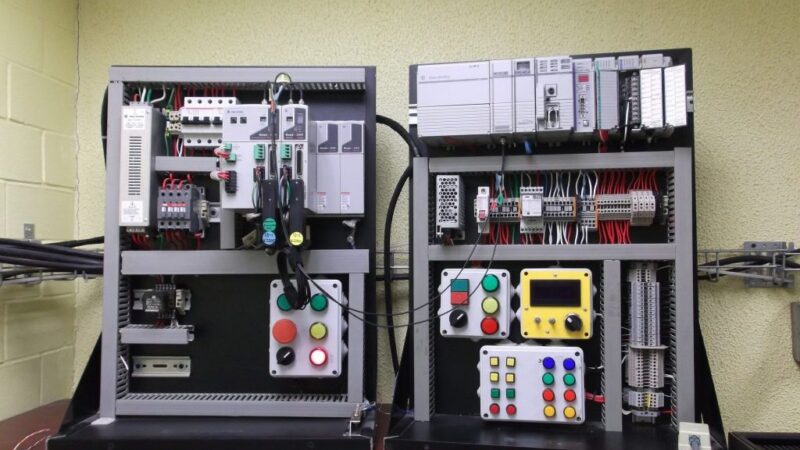How can an organisation apply for Sponsor Licence?
Many industries, including agriculture, technology, hospitality, and finance, rely on the capacity to employ professionals from other countries to satisfy client needs, start new initiatives, and expand their businesses. Following Brexit, UK employers may require a sponsor licence for the same.
The sponsor licence, formerly known as the Tire 2 (General sponsor licence) permits UK-based firms to hire talented employees from overseas. Foreign nationals staying in the United Kingdom in Tire 4, Tire 2 or other types of visas can be eligible for obtaining a sponsor licence and are free to switch their existing visas for a Skilled Worker visa.
Once approved, the licence will be valid for four years with the option to renew it.
However, merely sponsoring someone does not guarantee that they will be given a work visa in the United Kingdom.
How can a UK-based company apply for a Sponsor Licence?
The procedure for acquiring a sponsorship licence involves several steps. The UK-based firm, which is planning to bring in foreign recruits must submit an application form online, along with a minimum of four specified supporting documents as evidence of its trading presence in the UK. Along with that, the employer must also attach a cover letter to provide background information about the company.
The Home Office may occasionally request extra documentation, such as proof of the company’s HR operations, to determine if the compliance standards and sponsorship obligations will be completed. The Home Office may perform a compliance inspection at the firm premises while evaluating the licence application.
Eligibility Criteria: What requirements must be met in order to receive a sponsor licence?
To be eligible to apply for a sponsor licence, your company must have a UK presence and be operating or dealing legitimately in the country. Depending on your needs, you may apply for a single licence that covers all of your linked UK organisations, or you can apply for separate licences for each branch.
If you are needed to be registered with or inspected/monitored by a statutory authority to operate lawfully in the UK, you must present confirmation confirming you (and any branches covered by the licence) are registered with the proper institution. You may also be asked to show documentation that you have received the requisite planning permission or consent from the local planning authority to run your type of business at your trade address.
The Home Office must be confident that you can offer real work in a skilled vocation and that you will pay the Home Office’s wage rate.
You agree to accept all of the obligations that come with owning a sponsor licence as part of your licence application.
Private individuals are not normally qualified to act as sponsors, however, there is an exception if the individual is a business owner who wants to hire someone.
What are the various sorts of ‘Worker’ permits?
Before applying, you must know about the categories of Sponsor Licence. There are four types of ‘Worker’ licences including the Skilled Worker licence, The intra-company transfer (ICT) licence, the licence for Professional athletes and the licence for Ministers of Religion. Let’s discuss the following:
1. Skilled Worker (formerly Tier 2 General)
The Skilled Worker pathway is designed for migrants who have been given work in the UK. This is the most popular method for skilled workers from other countries to enter the UK.
2. Intra-company transfer (ICT)
The intra-company transfer (ICT) route is for migrants whose foreign company has given them a temporary position in the UK office. Unless the remuneration package exceeds £73,900, the worker must have worked for the company for at least 12 months.
3. A sports participant
Professional athletes and competent instructors are not eligible for sponsorship under the Skilled Worker programme; instead, they must apply for a Sportsperson visa (T2).
4. Ministers of religion
This licence is for those who have been given a job as a religious minister or a missionary in a religious group. Unless the position is at a prominent position within the organisation, it must be a pastoral one (involving primarily pastoral duties).
Roles such as teaching, media creation, and administration within a religious organisation may not be eligible for sponsorship through the Minister of Religion route, and the organisation may need to apply for a Skilled Worker licence instead.
Documentation: What evidence will I need to apply for a sponsor licence?
A minimum of four mandatory papers are usually required with the Skilled Worker (formerly Tier 2 General) licence application. Whether you’re representing a government agency, a startup, a franchise, or a small business, the number of documents you’ll require varies.
The following documents are easy to obtain:
- Your company’s most recent bank statement.
- Employer’s liability insurance from a reputed provider with a minimum amount of £5 million.
- Certificate of VAT registration
- A PAYE and Accounts Office Reference Number are examples of evidence of HMRC employer registration.
- Proof of ownership, lease, or rental agreement for the company’s premises.
- Accounts that have been audited lately or have never been audited (audited accounts are mandatory if your company is legally obliged to file audited accounts).
- If you are needed to be registered with and/or inspected/monitored by a regulatory authority to operate lawfully in the UK, provide proof of your registration.
- You’ll also need to present confirmation of shared ownership between the UK and the foreign company if you’re applying for a sponsor licence under the Intra-Firm Transfer subcategory.
There are multiple kinds of sponsor licences, each with its own set of supporting documentation that must be presented. You must contact immigration experts to decide which sort of visa you need and help you create a custom document checklist for you.
Sponsorship Certificate
Following the issuance of a licence, the Sponsor Management System generates an electronic document known as a Certificate of Sponsorship (CoS).
To sponsor a migrant worker, the company must first acquire a Certificate of Sponsorship from the Home Office through SMS. Once accepted, the company must assign it to the migrant worker they intend to sponsor, resulting in a unique reference number for the applicant to use when completing their visa application.
Under revised sponsor licencing standards, the Home Office has renamed its previous two types of CoS depending on migrant worker immigration status.
Reach out to us for more information
Over the last ten years, our skilled immigration lawyers at A Y & J Solicitors have helped thousands of clients, including those that needed a sponsor licence (previously Tier 2 sponsor licence) and successfully assisted them with their transition to the UK. We have a 4.9/5 trust rating based on hundreds of reviews on TrustPilot and Google. If you feel you need our help with your visa or sponsorship application, feel free to reach out to us.
If you have more legal blog than write for us law






